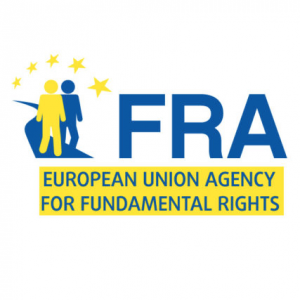In November 2018 the University of Luxembourg, the department of Geography and Spatial Planning has become the FRANET National Focal Point in Luxembourg for the European Union Agency of Fundamental Rights (FRA). As national contractor, the University of Luxembourg produces various reports on the human rights situation in Luxembourg touching upon a variety of topics, thereby assisting FRA to monitor the protection of fundamental rights in the country. The mandate covers several topics, among others, access to justice; asylum, migration & borders; hate crime; information society, privacy and data protection; LGBTIQ+; people with disabilities and racism & related intolerances.
Until today the University of Luxembourg has contributed to the work of FRA by delivering reports in the following topics:
Coronavirus disease (COVID-19) outbreak in the EU – impact on fundamental rights (March 2020 – November 2020)
The impact on fundamental rights of the measures taken by the government and other public authorities in the context of the COVID-19 outbreak have triggered concerns on national and international levels. It is of utmost importance to ensure that these measures are proportionate and necessary in a democratic society and to analyse the risks and that their impact on certain groups, such as older people and other vulnerable groups. An emphasis is being put on the impact on selected key fundamental rights such as non-discrimination and equality, freedom of movement, privacy and data protection.
FRA has produced bulletins that outline the measures taken to protect public health and their impact on fundamental rights in EU Member States. A country reports for Luxembourg are also published.
Bulletin 1 and Country Report (February – March 2020).
Bulletin 2 and Country Report (April – May 2020).
Bulletin 3 and Country Report (May – June 2020).
Bulletin 4 and Country Report (June – July 2020).
Fundamental Rights Impact of the EU Terrorism Directive (April 2020)
This report gathers information on key fundamental rights challenges at the national level in the field of counter-terrorism with a specific accent on the implementation of the Directive 2017/541 on combating terrorism.
Long-term residence permits (April 2020)
The purpose of this data collection has been to map national long-term residence permits within the 25 EU Member States bound by the EU Long-Term Residence Directive 2003/109/EC and to provide a comparison between the national and EU long-term residence permit regimes.
Severe labour exploitation and the Employers Sanction Directive (April 2020)
This data collection exercise will enable FRA to have an overview of the situation in the 25 EU Member States bound by the Employers Sanctions Directive 2009/52/EC on how the protective provisions in the directive have impacted on victims of particularly exploitative working conditions.
For more information on FRA work on severe labour exploitation.
Justice for all? Equal access to criminal justice for all victims of crimes against the person (April 2020)
The Victims’ Rights Directive ensures access to justice and non-discrimination for all victims of crime. The research aims at providing data on the treatment of various categories of victims of crimes – namely female victims of gender-based violence; children; victims with disabilities; victims of hate crime; victims of terrorism; and ‘other’ victims – by the state and other relevant stakeholders.
Data collection on experiences of discrimination on grounds of disability and on grounds of age in the area of employment and occupation (Contribution to FRA paper on the application of the Equality Directives (Directives 2000/43/EC and 2000/78/EC)) (February 2020)
The purpose of this research is to collect available national data and information on discrimination on grounds of (1) disability and (2) age in the area of employment and occupation in the EU Member States with a view to the forthcoming review of the application of the Racial Equality and Employment Equality Directives (Directives 2000/43/EC and 2000/78/EC)).
Contributing to the FRA Fundamental Rights Report 2020 (January 2020)
The FRA Fundamental Rights Report 2020 aims at providing data and information on important developments in Luxembourg in 2019 in the following areas:
- Equality and non-discrimination
- Racism, xenophobia and related intolerance
- Roma integration
- Asylum, visas, migration, borders and integration
- Information society, data protection
- Rights of the child
- Access to justice including rights of crime victims
- Developments in the implementation of the Convention on the Rights of Persons with Disabilities
The annual report can be found on the FRA website.
Analysing the use of the EU Charter of Fundamental Rights at national level (January 2020)
In the context of the FRA Fundamental Rights Report 2020, the report provides relevant information about the use of the EU Charter in Luxembourg in several levels, in example, as a guidance used by national courts in their jurisprudence, means of influence in legislative developments or a reference in academic works.
Reporting on legal aid in return procedures (February 2020)
The research and data collection intends to analyse the availability of free legal aid for people in return procedures in order to enable FRA to have an overview of the situation in the 28 EU Member States.
Updating the FRA Anti-Muslim Hatred Database 2019 (September 2019 and September 2020)
The Anti-Muslim Hatred database provides information on significant international, European and national case law and rulings, UN human rights body decisions, reports, findings by human rights and equality bodies and organisations relating to hate crime, hate speech and discrimination against Muslims, as well as relevant research, reports, studies, data and statistics on these issues. It also provides information on victims’ support organisations in the EU Member States. The full Anti-Muslim Hatred Database is available on FRA website, with specific aspects on Luxembourg here.





